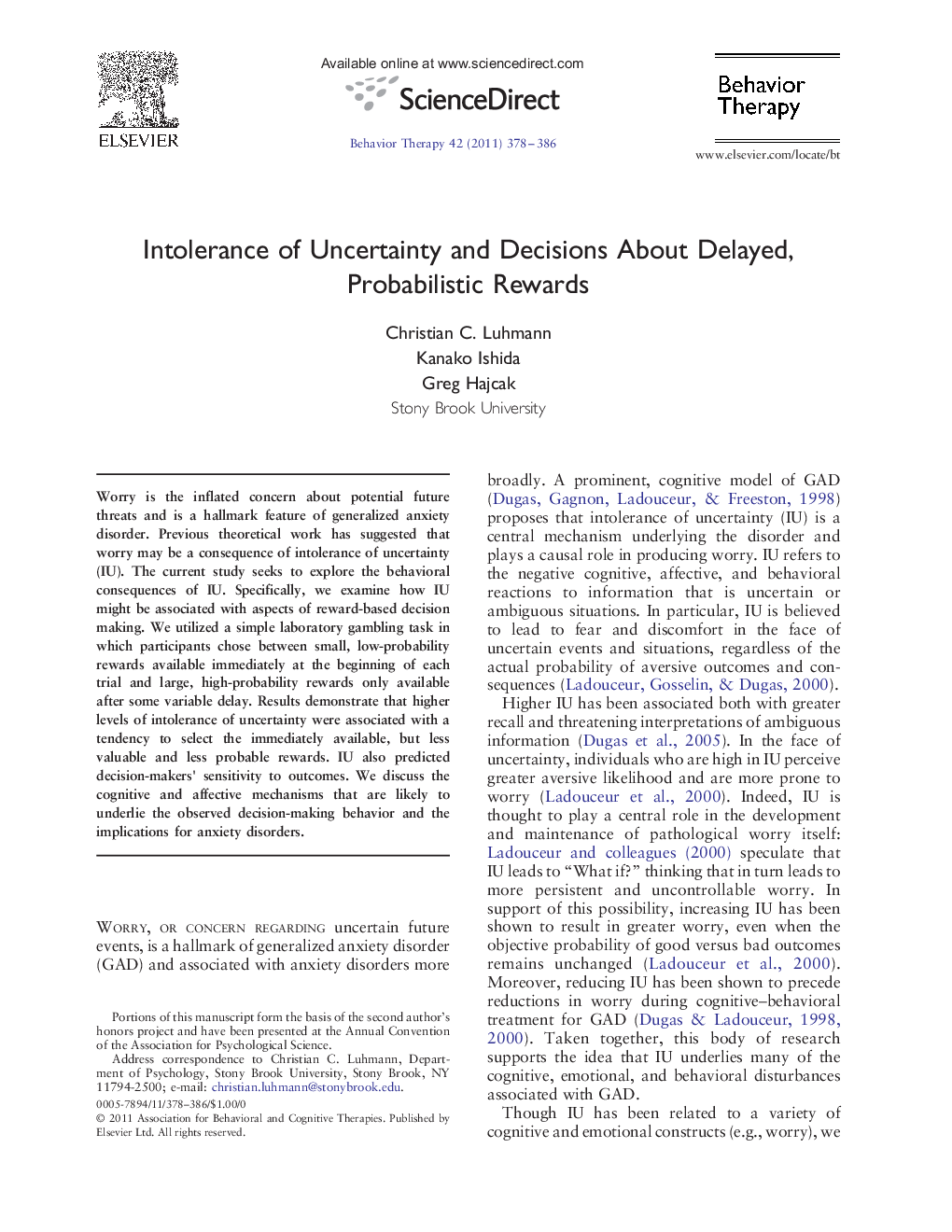| کد مقاله | کد نشریه | سال انتشار | مقاله انگلیسی | نسخه تمام متن |
|---|---|---|---|---|
| 901422 | 915867 | 2011 | 9 صفحه PDF | دانلود رایگان |

Worry is the inflated concern about potential future threats and is a hallmark feature of generalized anxiety disorder. Previous theoretical work has suggested that worry may be a consequence of intolerance of uncertainty (IU). The current study seeks to explore the behavioral consequences of IU. Specifically, we examine how IU might be associated with aspects of reward-based decision making. We utilized a simple laboratory gambling task in which participants chose between small, low-probability rewards available immediately at the beginning of each trial and large, high-probability rewards only available after some variable delay. Results demonstrate that higher levels of intolerance of uncertainty were associated with a tendency to select the immediately available, but less valuable and less probable rewards. IU also predicted decision-makers' sensitivity to outcomes. We discuss the cognitive and affective mechanisms that are likely to underlie the observed decision-making behavior and the implications for anxiety disorders.
Journal: Behavior Therapy - Volume 42, Issue 3, September 2011, Pages 378–386